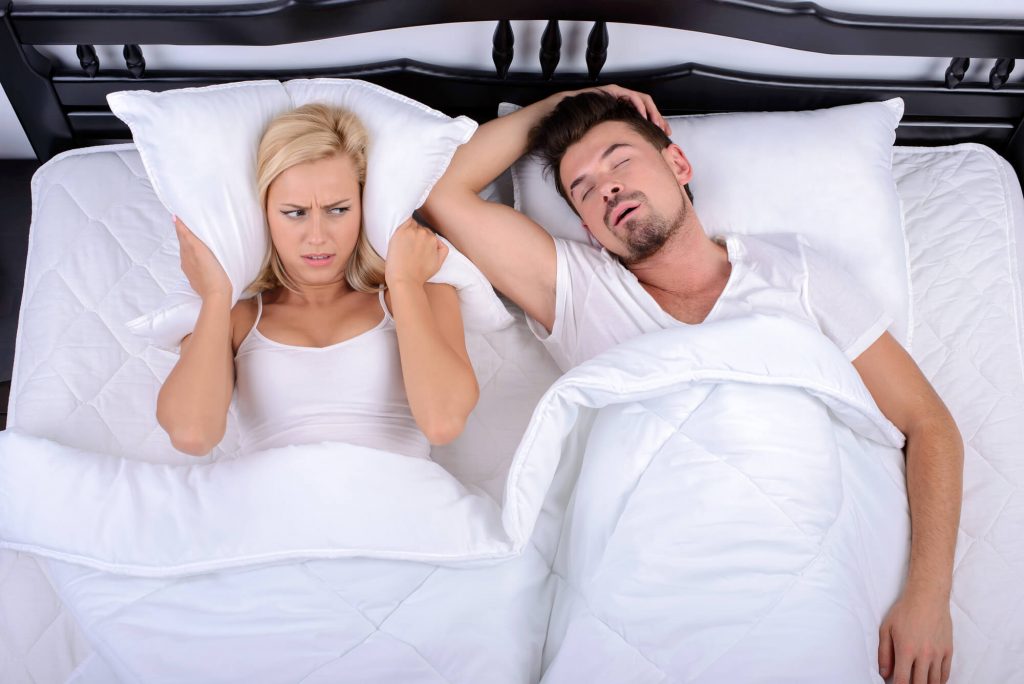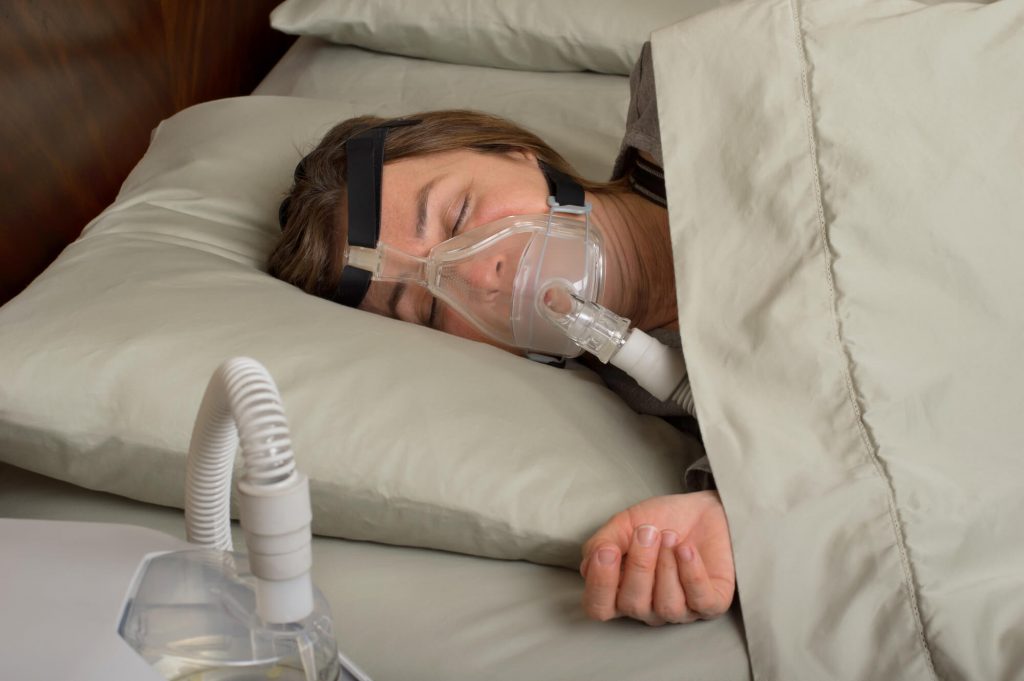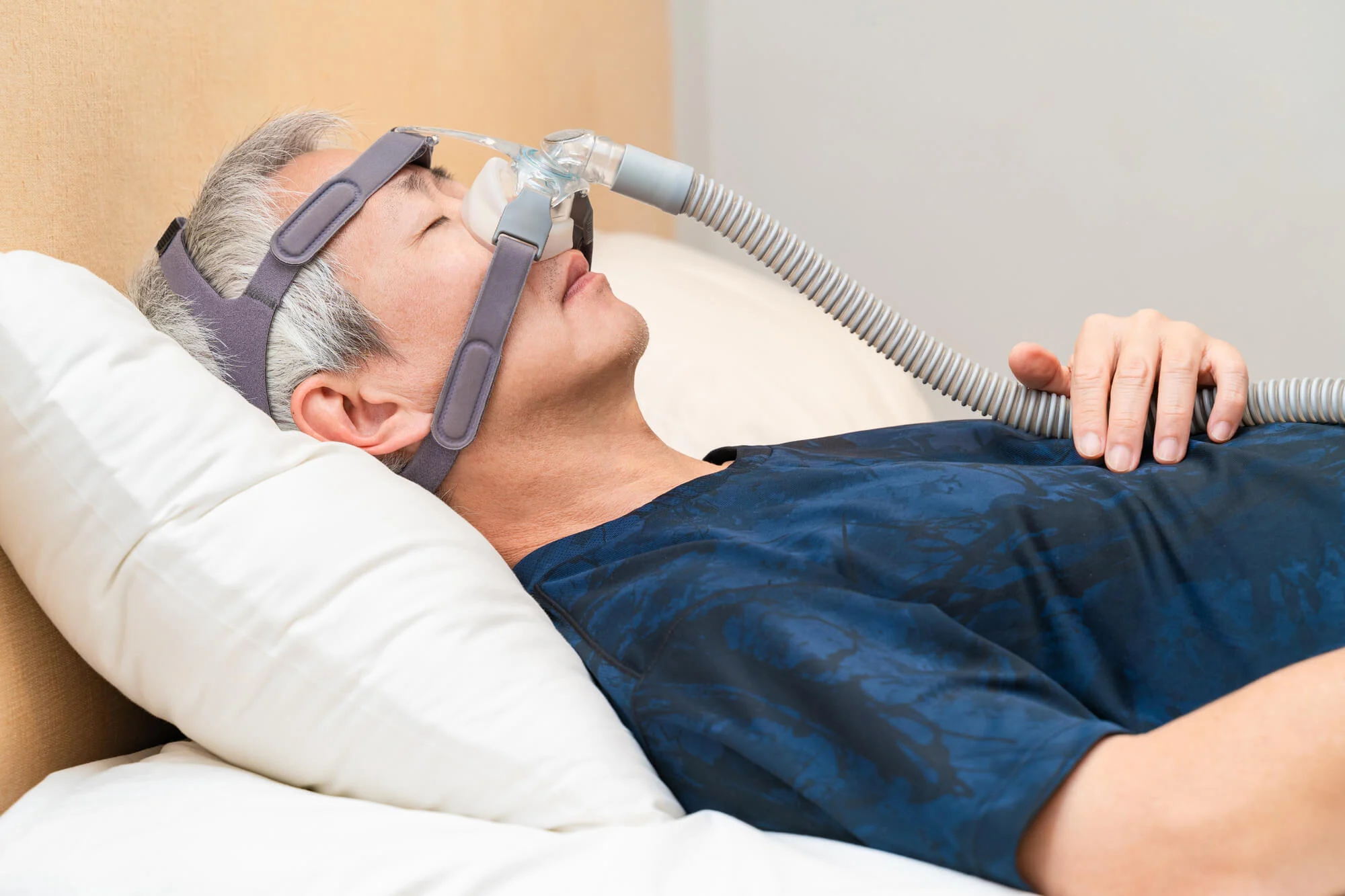Did you know that about 12 million Americans suffer from sleep apnea? Unfortunately, persistent misconceptions about this condition cause people to do things that can hurt their health. Thankfully, a sleep apnea dentist in Las Vegas debunks the biggest myths that stop countless patients with sleep apnea from seeking much-needed treatment.

A Closer Look at Sleep Apnea
Sleep apnea refers to a potentially serious sleep disorder that occurs when breathing repeatedly stops and starts. Leaving this sleep apnea untreated will lead to loud snoring and daytime tiredness even after getting a full night’s sleep. It can also cause more serious problems such as high blood pressure and heart disease.
Dispelling the Most Persistent Myths About Sleep Apnea
MYTH #1: “You won’t have sleep apnea if you’re not overweight.”
Although obesity is a major risk factor for sleep apnea, anyone can suffer from it. Since no group of people is exempt from the risk of developing this condition, it can affect children, adults, seniors, men, women, athletes, smokers, and nonsmokers. However, those who are likely to develop sleep apnea are patients who have a large overbite, small jaw, recessed chin, large neck, or large tonsils.
MYTH #2: “Sleep apnea and snoring mean the same thing.”
When air moves past the soft tissues in the throat and causes them to vibrate, it produces a sound called snoring. Although snoring isn’t always an indication of a medical problem, it’s one of the common symptoms of obstructive sleep apnea (OSA).
OSA is a condition marked by repeated pauses in breathing throughout the night. These breathing pauses, which can last between 10 to 20 seconds, occur when the soft tissues in the throat relax and block the airway.
MYTH #3: “Every snorer has sleep apnea.”
Nose or throat conditions, being overweight, old age, using alcohol or other depressants, and sleeping in the supine position, can cause primary snoring. Although primary snoring and sleep apnea-related snoring both occur when the soft tissues in the back of the throat vibrate, sleep apnea is different from regular or primary snoring.
People who suffer from sleep apnea snore much louder than those with primary snoring. Additionally, they take shallow breaths, pause for over 10 seconds while they breathe, gasp, choke, feel restless while sleeping, and feel tired during the day.
If you’re a snorer but feel refreshed and full of energy the next day, you may have primary snoring and not sleep apnea. However, it’s still best to ask your physician about it so that they can determine whether your snoring issue is a cause for concern. It’s important to note that it’s still possible for some people to have a real sleep apnea problem even if they appear to require less sleep and not feel sleepy or tired during the day.
MYTH #4: “A person who has sleep apnea is also a snorer.”
Someone who doesn’t snore isn’t necessarily out of danger because studies show that up to 20% of those diagnosed with sleep apnea don’t snore. However, they may experience other sleep apnea-related symptoms that include waking up with a headache, a dry mouth, or a raspy throat. According to sleep experts, the strongest sign of sleep apnea is “witnessed sleep apnea,” or when someone tells you that they’ve seen you stop breathing while you were sleeping.
MYTH #5: “Sleep apnea isn’t a big deal.”
Sleep apnea is a big deal. If this condition remains untreated for long enough, it can lead to serious medical conditions such as type 2 diabetes, high blood pressure, heart disease, strokes, and dementia.
Additionally, sleep apnea contributes to unhealthy weight gain, a decline in libido, mood changes, depression, memory problems, slow reflexes, loss of focus, and decreased productivity at work. Furthermore, patients with sleep apnea are at high risk for complications from general anesthesia and certain medications.
MYTH #6: “Only men are diagnosed with sleep apnea.”
While obstructive sleep apnea affects men at higher rates, women and children are also diagnosed with this condition. Moreover, the incidence of sleep apnea in post-menopausal women is only slightly less than men of the same age and body mass index (BMI.)
In most cases, sleep apnea presents itself differently in men and women. For instance, men with sleep apnea experience nighttime snoring and excessive sleepiness. Meanwhile, women experience more insomnia-like symptoms.
MYTH #7: “Nothing else can treat sleep apnea except CPAP therapy.”
Continuous positive airway pressure (CPAP) therapy involves using a machine to prevent sleep apneas by forcing air into the throat. Although this type of treatment is effective, it’s not the only option for those who suffer from OSA. Sleep apnea dentists provide their patients with a custom oral appliance that’s more comfortable than a CPAP machine because it opens the airway by gently repositioning the jaw.

Do You Need to See a Sleep Apnea Dentist in Las Vegas?
At Dee for Dentist, we want you to experience a good night’s sleep. Contact us today to make an appointment.
